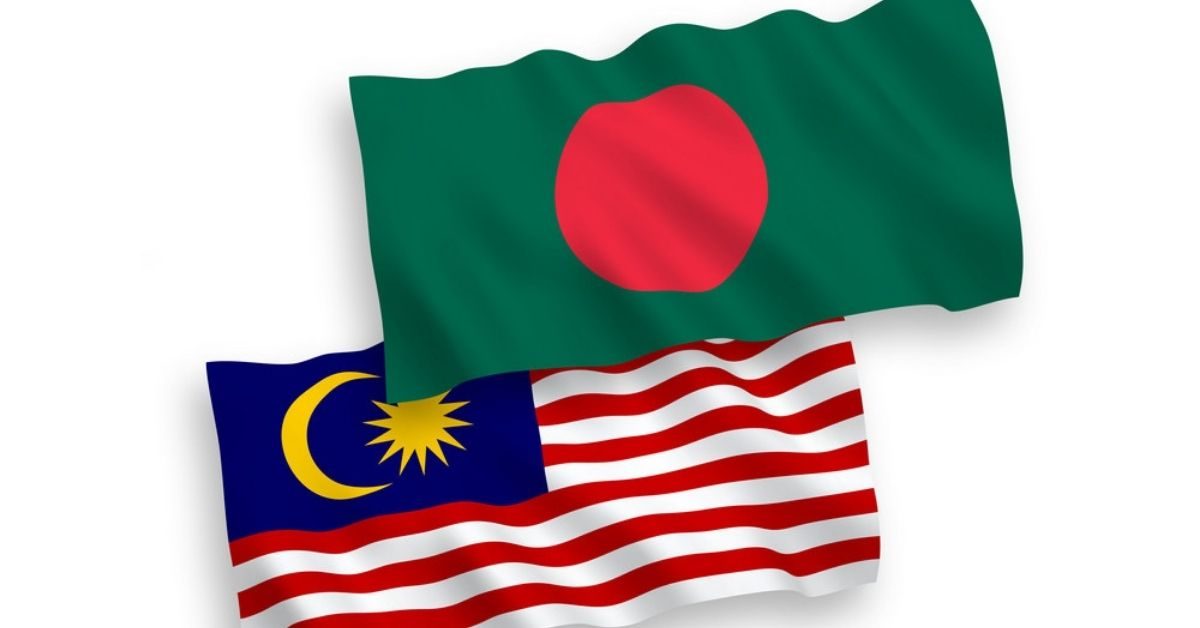As a free trade agreement (FTA) with Malaysia returns to the table, experts fear local companies could lose business to Malaysian ones if duty-free market access is given in sectors where the latter has a competitive advantage.
The FTA can be a good decision if Bangladesh can get some preferences from Malaysia, said President of Dhaka Chamber of Commerce and Industries (DCCI) Rizwan Rahman.
Malaysia is more technically and technologically advanced than Bangladesh, he said, adding that if duty-free market access is given to Malaysia, local companies might lose the market to them.
“We will have to consider offering free trade based on our preferences according to a positive list by protecting our competitive items. Then the FTA with Malaysia will be positive for us in terms of increasing exports to Malaysia and getting investments that will facilitate skills development and technology transfer,” the DCCI president further said.
Professor Mustafizur Rahman, a distinguished fellow at the Centre for Policy Dialogue (CPD), said that in addition to FTAs, Bangladesh also needs to pursue Comprehensive Economic Partnership Agreements (CEPAs) with trading nations.
“We need to explore the integration of services that Bangladesh can offer since Malaysia is one of the biggest destinations for migrant workers. We need to explore the possibility of getting the first preference in terms of Malaysia’s demand for migrant workers,” he added.
According to the Bangladesh-Malaysia Chamber of Commerce and Industry (BMCCI), the National Board of Revenue (NBR) had previously spoken out against the FTA as well, suggesting the government would lose out on import duty if such agreements were pursued.
But the FTA in question has been on the table for 11 years now, and it is being designed by assessing the effectiveness in unlocking international business opportunities between both economies.
Earlier on Thursday, the BMCCI organized a webinar in this regard, where Commerce Minister Tipu Munshi guaranteed he would “go for this FTA”.
“Our future trade benefits will mainly depend on bilateral FTAs as Bangladesh will have to give up its duty-free facilities and a multitude of trade preferences following its graduation to a middle-income nation,” the minister had said.
“Such deals will accommodate the country in getting the duty benefits after graduating from the league of least developed countries (LDCs) in 2024,” he added.
Speaking to the Dhaka Tribune, BMCCI President Raquib Mohammad Fakhrul said FTAs tend to diminish or erase certain barriers to trade and investment and facilitate stronger trade and commercial ties.
“We expect an increase in international trade volume and the access to increase our specialization in comparative advantages. Our business communities of both countries need to be ready for it and be cautious of the potential challenges we might face,” he added.
At the webinar on Thursday, the Malaysian High Commissioner to Bangladesh Haznah Md Hashim said Malaysia has signed 16 FTAs since 1993, with the latest agreement being penned amid the pandemic.
In 2020, Malaysia’s exports to its FTA partners stood at 667.46 billion Malaysian Ringgits (MR), or 68% of the total exports, mainly entailing electronic components, petroleum, and chemical products- accounting for 53.2% of exports.
The Bangladesh Trade and Tariff Commission (BTTC) reports that apart from the ASEAN countries, Malaysia has already signed FTAs with seven countries — India, Pakistan, China, Japan, Turkey, New Zealand, and Australia.
In contrast, Bangladesh has not officially signed FTAs with any country yet.
Malaysia is Bangladesh’s 30th largest trading partner ranking second overall among South Asian economies and Bangladesh’s 20th largest import destination, implying the country’s growing influence.
The trade between Malaysia and Bangladesh stood at around $2.6 billion in 2019, up from $2.4 billion in 2018.
Bangladesh mainly exports apparel, vegetables, tea, spices, cereal, and flour to Malaysia.
On the other hand, the main imports from Malaysia include mineral fuels, oils, distillation products, pearls, precious stones, metals, coins, plastics, machinery, nuclear reactors, boilers, salt, sulfur, stone, plaster, lime, vegetable fats, and oils, cotton, aluminum, and electrical and electronic equipment.
Bangladesh struck its first bilateral trade agreement — a preferential trade agreement (PTA) — with Bhutan in December 2020. Bangladesh will get duty preference for 100 goods and extend the same benefit to Bhutan for 34 interests.
The Bangladesh government is also discussing signing a PTA with Nepal soon and negotiating with 11 more countries to sign FTAs.
Currently, Bangladesh has the Bilateral Trade Agreement (1977), Economic and Technical Co-operation Agreement (1992), Avoidance of Double Taxation Agreement (1983), Investment Promotion and Protection Agreement (1994), and the Maritime Transport Agreement (1983) with Malaysia.
Source : Dhaka Tribune







